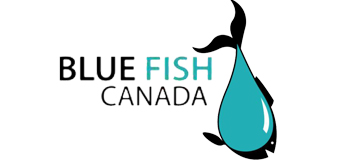COVID-19 Update
Blue Fish Canada is tracking Covid-19 impacts on recreational anglers, indigenous fishers, water quality and fish health, as well as those in the business of recreational fishing. The information we gather will assist in identifying immediate and longer term supports necessary to secure and enhance the resilience and recovery of Canada’s non-commercial fisheries. We invite stakeholders interested in sharing information on the effects of COVID-19 to submit information to Blue Fish Canada at: BlueFishCan@gmail.com. Here’s what we know now:
Closures: To reduce the risk of the virus being spread among anglers at popular shoreline fishing areas and boat launches, provinces such as Nova Scotia, New Brunswick and Quebec have postponed the April opening of trout fishing season. Ontario has implemented a variety of closures and restrictions to their parks and conservation areas that include many municipalities closing boat launches. Similarly, Parks Canada has temporarily suspended all public motor vehicle access to all national parks, national historic sites, and national marine conservation areas. Gatineau Park located in West Quebec has also been closed, as have the St. Lawrence Thousand Island parks.
International: Similar closures are occurring in the U.S. prompting the American Sportfishing Association to write to 50 US governors asking them to keep fishing opportunities and businesses open where possible during the COVID-19 pandemic. They acknowledge that in no way do they want to stand in the way of the efforts of states to limit the spread of COVID-19, and they recognise that in certain cases fishing access restrictions are warranted. They go on to say that given that recreational fishing provides health and benefits associated with being outdoors, and a source of food for many individuals, “recreational fishing should be promoted as a safe outdoors activity compatible with physical distancing guidelines”.
Foraging: Some northern Canadian community leaders are encouraging families to go out on to the land and practice self-sufficiency as a means of avoiding the virus and minimising the chance of its spread. Many of Canada’s rural, remote and northern communities have very limited or no access to doctors and the sorts of medical resources required to respond to outbreaks of COVID-19.
Tournaments: Organized fishing tournaments and other competitive fishing events are choosing to reconsider the timing of their event dates, or to cancel events altogether. Given the carefully orchestrated process event organizers undertake to select the timing and locations of events to maximize participation and minimize overlap, and uncertainty over the time it will take to flatten the transmission curve of the virus, few are promising their competitors a compressed schedule that includes all events.
Outdoor Shows: Most all outdoor and fishing shows were cancelled from mid-March forward, and closures to fishing related businesses have underscored the need to build and maintain strong on-line presence. Larger operations can afford costs associated with on-line commerce, which may mean sustaining smaller businesses may prove difficult.
Industry: Fishing industries and those businesses that depend on recreational angling and indigenous fishing are already being impacted by closures and self-isolating strategies. These businesses are often considered seasonal in Canada, which makes the timing of the pandemic especially problematic since most businesses had already placed and paid for their product orders for the year.
Tourism: Much of Canada’s fishing tourism / adventure related operations account for a large portion of the economic contribution to rural, remote and northern regions across Canada. These businesses are also often characterized as small businesses (20% have fewer than 20 employees and 80% are non-employer businesses). Their operations are also being impacted by border closures. These businesses will require focused government support to ensure they recover from these closures to ensure the socio-economic survival of Canada’s non-urban communities.
Self-Isolating: The commonly expressed view of anglers residing in more developed parts of Canada is to avoid leaving their homes unnecessarily to reduce incidents that may place additional strain on emergency responders and healthcare systems, and to mitigate the spread of Covid-19 itself. Many are counselling others to adhere to the advice of governments and scientists across Canada to leave home only for the purpose of carrying out essential activities, and to comply with the many prohibitions now in place.
Fishing Pressure: With an estimated 9-million recreational anglers across Canada, numerous indigenous communities with strong ties to fishing, and people who may ultimately take-up fishing for economic reasons or to address food insecurity, tracking the fishing efforts of recreational anglers, indigenous fishers and illegal harvesters may pose additional challenges. Monitoring fishing pressure on fish stocks across Canada is usually the role of government led creel surveys, which may now be suspended over health concerns for the summer students normally hired to conduct such surveys.
Research: Independent fisheries research conducted by universities and other conservation groups may also be suspended due to health concerns for their field researchers and a lack of fishing data normally provided by anglers and tournament organizers supporting such research through citizen science.
Enforcement: Postponing the opening of fishing seasons and placing off limits public access fishing areas and boat launches will reduce fishing pressure to levels far below the norm, which may generate strong 2020 fish class populations. However, tracking the numbers and impacts of those who choose to ignore closures could significantly impact current fish stocks, the totality of which could be quantified as long as sufficient government enforcement officers remain on the job.
Water Quality: The Great Lakes may be impacted following the United States of America suspending the enforcement of their Environmental Protection Agency monitoring and reporting obligations of American. companies. The EPA cites challenges resulting from efforts to protect workers and the public from COVID-19 may directly impact the ability of regulated facilities to meet all federal regulatory requirements. Water quality watch-dog organizations are concerned that companies may view the suspension as an opportunity to circumvent environmental safeguards without having to report why or to monitor for impacts.
Socio-Economic Impacts: Given that the economic contribution of most fishing related businesses and the involvement of those who fish have never been properly quantified across Canada, how they might be affected if fish stocks are impacted will be difficult to assess. Using artificial intelligence such as angler apps and the analysis of reports posted to social media sites may assist in monitoring fishing pressure levels and related socio-economic trends as the pandemic unfolds.
Timing: We all know about the need to reduce the peak demand that will soon be facing our health services. We are also being told that the world’s ability to defeat COVID-19 in the near term is unlikely as the development and distribution of an effective vaccination is still many months away. Once we get through the challenge of reducing the initial spread of COVID-19, experts speculate that we could be battling the virus for months afterwards through the identification and remediation of outbreaks as they emerge.
Conclusion: The new norm for the next while will entail all of us exercising due diligence as we move through peak outbreaks of the virus. Once we have surpassed the initial crisis, there will be time to figure out and apply science-based precautionary approaches to supporting our families, safeguarding our communities, and for pursuing our outdoor lifestyles. What fishing might entail in the medium term, once we are through the worst of the outbreak and before we can return to normal, will require all stakeholders working together. Blue Fish Canada will continue to stay engaged to ensure the voices of anglers, fishing communities, fish researchers, the fishing industry, and conservation groups are shared and heard. Until then, Blue Fish Canada will continue to work hard to gather and sort the information we need to ensure the future of fish and fishing. On the bright side, some speculate that postponements and closures to early season fishing will result in the 2020 year class of fish populations being some of the strongest Canada has experienced in years.
Keep Up-to-date: Watch out for more Blue Fish News in your inbox, on Twitter, on Facebook, and on our weekly podcast Blue Fish Radio.
Donations: Blue fish Canada depends on volunteers across Canada and on your donations to coordinate and implement programs. Please consider making a charitable donation to support our continuing to ensure the future of fish and fishing across Canada:
Link here to donate: https://bluefishcanada.ca/donations/
 Blue Fish Canada/Poisson Bleu Canada
Blue Fish Canada/Poisson Bleu Canada
